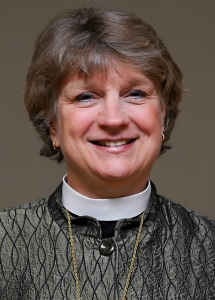 By Bishop Ann Svennungsen
By Bishop Ann Svennungsen
What does “discipleship in a democracy” look like after the 2020 election? (Among the many gems in our ELCA Social Message on government is the phrase “discipleship in a democracy” used in the title.)
“Listen more than speak.”
So much can be said about our callings as Christians in this moment – more than a weekly blog can name. I’d like to highlight two practices:
- Give thanks for democracy: Whatever your feelings about the election results, give thanks that more than 160 million people voted. That’s a record number of votes in any year – even more remarkable since it occurred during a global pandemic.
- Commit to rebuilding the fabric of democracy: We need each other. We need a diversity of opinions, life-experiences, strategies, and perspectives. Welcoming diversity is key – as foundational as Paul’s affirmation that “there are many members, yet one body,” and “the eye cannot say to the hand, ‘I have no need of you.’” It describes the genius of Lincoln in choosing a “team of rivals” as his cabinet. It resounds through the best team-building tools, one of which states that the “absence of conflict” is a sign of disfunction.
Yes, we are committed to justice and the dignity of every human life. Discipleship in a democracy means we strive tirelessly for those ends. But, we also care deeply about the means. Mending the fabric of our democracy is a complex process, but it includes some simple things:
- Ask yourself how many conversation partners you have who are part of the 70-plus million who cast votes different from yours. Commit yourself to finding more.
- Listen more than speak.
- Start with curiosity. “I’m not sure I understand your point of view, please tell me more.”
- Find topics of agreement and commonality and build on those.
- Rigorously avoid insults and shaming; speak up when you see it happening.
- Find partners in your congregation who will join with you in this work.
SOME HAVE CALLED the task of Christian discipleship after the 2020 election as one of peacemaking. Though I hadn’t thought of it as peacemaking before, I guess our work to stop dehumanization in politics, to foster renewed relationships across difference of opinion, and to find ways forward toward the common good is a pretty essential kind of peacemaking.
“Discipleship in a democracy means we strive tirelessly for those ends. But, we also care deeply about the means.”
As Lincoln wrote in another time of great polarization: “Though passion may have strained, it must not break our bonds of affection. … The occasion is piled high with difficulty, and we must rise with the occasion.”
God give us faith, love, wisdom, and courage for days we face – together.

